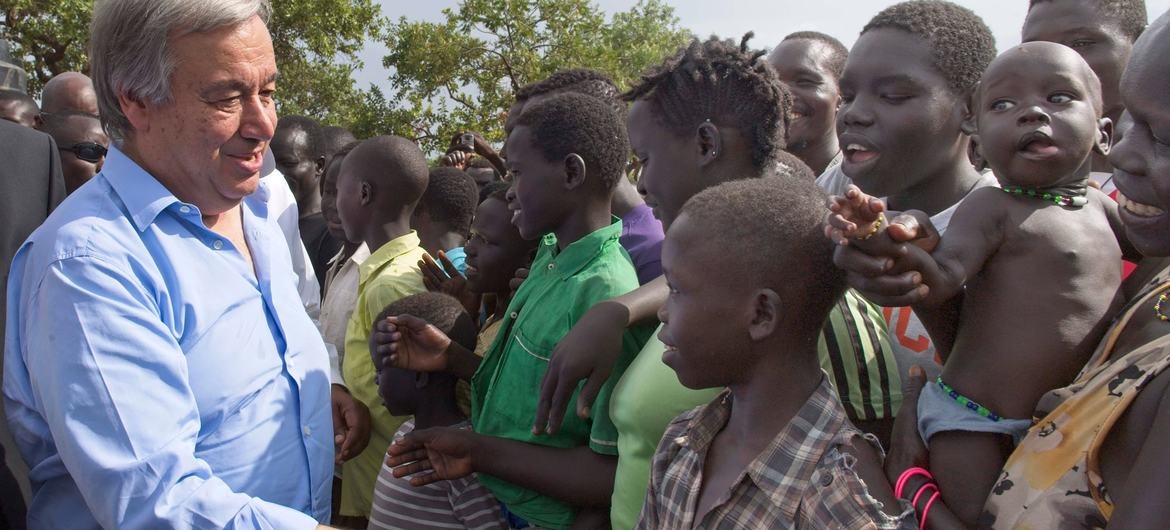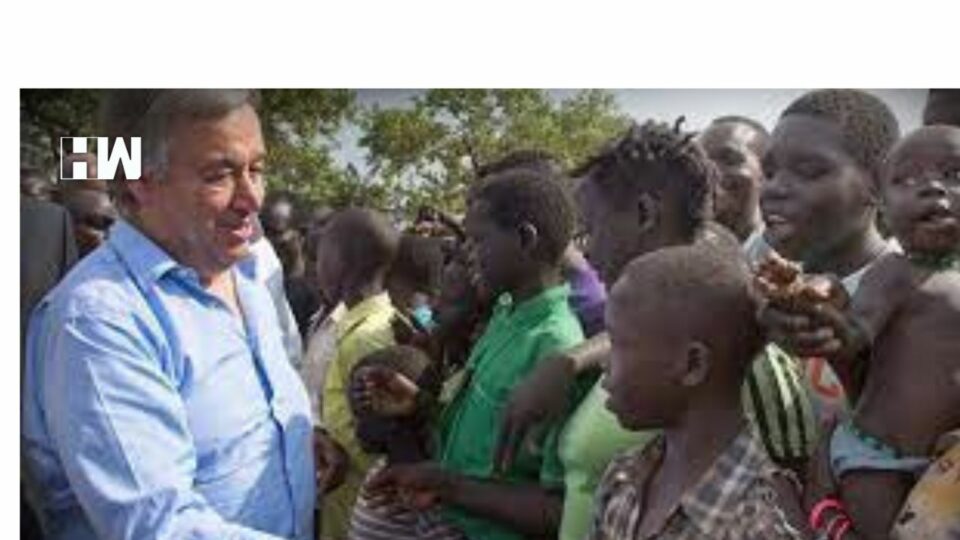Over the past eight years, at least 51,000 migrants have died, and thousands of others gone missing, said the top UN official.
More than 280 million people have left their countries to pursue “opportunity, dignity, freedom, and a better life”, the UN chief said on Sunday, International Migrants Day.
Secretary-General António Guterres credited the more than 80 per cent of those who cross borders in a safe and orderly fashion as powerful drivers of “economic growth, dynamism, and understanding”.
“But unregulated migration along increasingly perilous routes – the cruel realm of traffickers – continues to extract a terrible cost”, he continued in his message marking the day.
Deaths and disappearances
Over the past eight years, at least 51,000 migrants have died, and thousands of others gone missing, said the top UN official.
“Behind each number is a human being – a sister, brother, daughter, son, mother, or father”, he said, reminding that “migrant rights are human rights”.
“They must be respected without discrimination – and irrespective of whether their movement is forced, voluntary, or formally authorized”.

‘Do everything possible’
Mr. Guterres urged the world to “do everything possible” to prevent their loss of life – as a humanitarian imperative and a moral and legal obligation.
And he pushed for search and rescue efforts, medical care, expanded and diversified rights-based pathways for migration, and greater international investments in countries of origin “to ensure migration is a choice, not a necessity”.
“There is no migration crisis; there is a crisis of solidarity”, the Secretary-General concluded. “Today and every day, let us safeguard our common humanity and secure the rights and dignity of all”.
There is no migration crisis; there is a crisis of solidarity – UN Secretary-General
Realize basic rights
For his part, the head of the International Labour Organization (ILO), Gilbert F. Houngbo, shone a light on protecting the rights of the world’s 169 million migrant workers.
“The international community must do better to ensure… [that they] are able to realize their basic human and labour rights”, he spelled out in his message for the day.
Leaving them unable to exercise basic rights renders migrant workers “invisible, vulnerable and undervalued for their contributions to society”, pointed out the most senior ILO official.
Vulnerabilities
And when intersecting with race, ethnicity, and gender, they become even more vulnerable to various forms of discrimination.
Mr. Houngbo flagged that migrants do not only go missing on high-risk and desperate journeys.
“Many migrant domestic, agricultural and other workers are isolated and out of reach of those who could protect them”, with the undocumented particularly at risk of abuse.
Fair labour migration
Meanwhile, ILO supports governments, employers and workers to make fair labour migration a reality.
Like all employees, migrant workers are entitled to labour standards and international human rights protections, including freedom of association and collective bargaining, non-discrimination, and safe and healthy working environments, upheld the ILO chief.
They should also be entitled to social protection, development and recognition.
To make these rights a reality, Mr. Houngbo stressed the key importance of fair recruitment, including eliminating recruitment fees charged to migrant workers, which can help eradicate human trafficking and forced labour.
Injustices suffered by migrant workers are injustices to us all – ILO chief
“Access to decent work is a key strategy to realize migrants’ development potential and contribution to society”, he said.
“We must recognize that injustices suffered by migrant workers are injustices to us all. We must do better”.
‘Cornerstone of development’
Meanwhile, in his message, the head of the International Migration Organization (IMO), António Vitorino, described migrants as “being a cornerstone of development and progress”.
“We can’t let the politicization of migration, hostility and divisive narratives divert us from the values that matter most”, he urged.
Regardless of what compels people to move, “their rights must be respected”, underscored the IMO chief.
As an independent media platform, we do not take advertisements from governments and corporate houses. It is you, our readers, who have supported us on our journey to do honest and unbiased journalism. Please contribute, so that we can continue to do the same in future.

